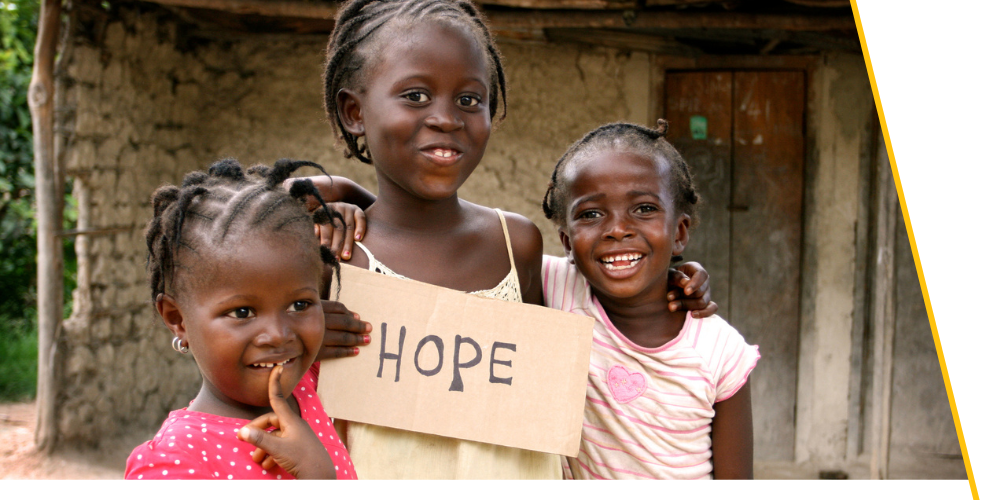Guinea’s Path to Stability: Navigating the transition to democracy

More than two years after the military coup of September 2021, the Republic of Guinea finds itself at a crossroads. As the interim government navigates its path to democracy, it faces formidable challenges and uncertainties. Many judicial reforms, initiated years ago with the support of GOPA PACE (formerly B&S Europe), have laid the foundation for this critical moment and will play an important role in shaping the nation's path forward.
From 2015 to 2020, GOPA PACE provided technical support to the Republic of Guinea to reform the justice sector. The project, funded by the European Union, had specific goals: establish a structural framework for an independent and efficient justice system; improve access to quality justice; define and implement prison system reforms; and set up a new reintegration center for minors.
The challenges were great. The justice system was marred by a lack of qualified personnel, widespread corruption, and inadequate infrastructure and equipment. Branches of the system suffered from chronic under-staffing, dilapidated infrastructure, prolonged detainment periods for those awaiting sentencing, and victims struggling to access justice promptly and effectively.
To create efficient and democratically controlled institutions capable of enforcing established rules and norms from the central authority down to the local level, three key pillars needed reform: the Ministry of Justice, responsible for organizing work and processes; the Higher Council of the Magistrate, tasked with judicial appointments and disciplinary matters; and the courts, protecting the rights of the Guinean citizens.
“Many people in the Ministries found it very difficult to accept such ambitious reform,” said Al Hassane Niang, Managing Director, GOPA PACE (formerly B&S Europe) “They feared that they would lose their positions or be forced to take on new lower responsibilities.”
Groundbreaking judicial reforms
Over five years and in partnership the Guinean government, GOPA PACE implemented an ambitious reform agenda, which included:
Accountable and independent judiciary
- Improving the management capacities and organization of the Ministry of Justice, including reorganizing the Ministry, assessing and matching staff capacities with functions, and creating and revising legal texts and manuals
- Establishment of the Superior Council of Magistrates, an independent entity responsible for nominating judges
- Implementation of a continuous training plan for magistrates and clerks
Access to quality justice
- Court reorganization with improved material, human and financial resources for efficiency
- Definition and implementation of a penal policy
- Adaptation of chapters of the Guinean Constitution on human rights into six indigenous national languages
- Establishment of a Legal Clinic, in partnership with the Guinean NGO Same Right for All, to support citizens seeking justice
- Constructing three new Appeal Courts in Kindia, Kankan & Mamou regions
Reformed prison system
- Definition and implementation of a prison policy
- Improved management and administration of penitentiary establishments and detention conditions, including bringing information technology to support the management of detainees, improving the transport of detainees, and training staff in best practices and human rights.
- Drafting of legal text and plans for the operationalization of a new reintegration center for minors, created to protect minors from the adult population.
Building trust through local and regional actors
Ministry support was crucial. “The Minister of Justice fully supported the project,” said Niang. “He understood the need for massive reform. He ensured that the legislative process advanced promptly, converting necessary reforms into laws.”
Experts from West Africa, having faced similar challenges and, in some cases, lived in countries that had undergone similar reforms, played a pivotal role in helping to build trust. They listened to Guinean stakeholders and heard their concerns. “These experts from Cameroon, Senegal, Burkina Faso, Mali, and other countries understood what the stakes were and could share their experiences in ways that were understood.” Working with local NGO’s also helped to build trust.
To ensure that the reforms were sustained over the long term, a Reform Bureau was established within the Ministry of Justice. The Bureau focuses solely on continuing the reform process, evaluating progress, identifying areas for improvement, and assessing the need for new laws.
“There is much more work to be done and always new needs and challenges to address, ” said Niang. “You may have the best laws and judges, but if the citizens do not have the capacity to access justice because of high costs, or distance or don’t understand their basic rights, it doesn’t matter. It’s a process and access to justice is something you need to keep building.”
